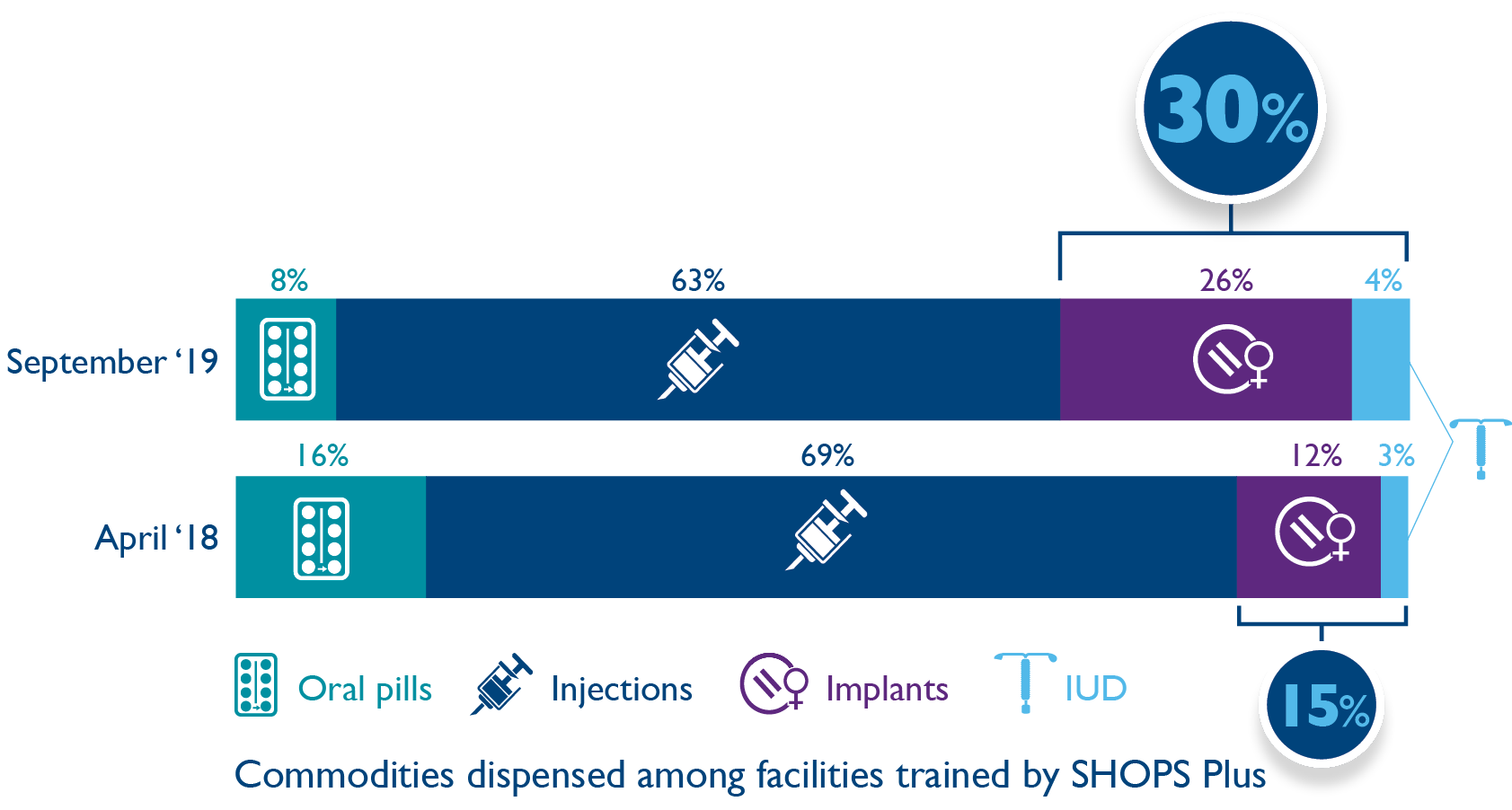Increasing access to quality family planning services
Of the 931 providers trained by SHOPS Plus, 546 are community health extension workers (CHEWs). Nigeria’s Task Shifting and Task Sharing Policy change in 2014 made it possible for community health extension workers to provide long-acting reversible contraceptives (LARCs). The policy change was a major step in increasing access to family planning services because CHEWs are the main service providers in hard to reach areas, where the unmet need for family planning services is highest. However, the CHEWs had low capacity, if any, in providing LARCs and as a result, the implementation of the policy was low. The SHOPS Plus project, in its quest to increase access to services, focused its efforts on training them in the public and private sectors on LARC provision. Consequently, the full method mix is now available in remote areas in the four implementation states giving women more options for family planning. The figure below shows that demand for LARCs doubled in just one year.

Learn more about family planning, provider quality, and total market approach.